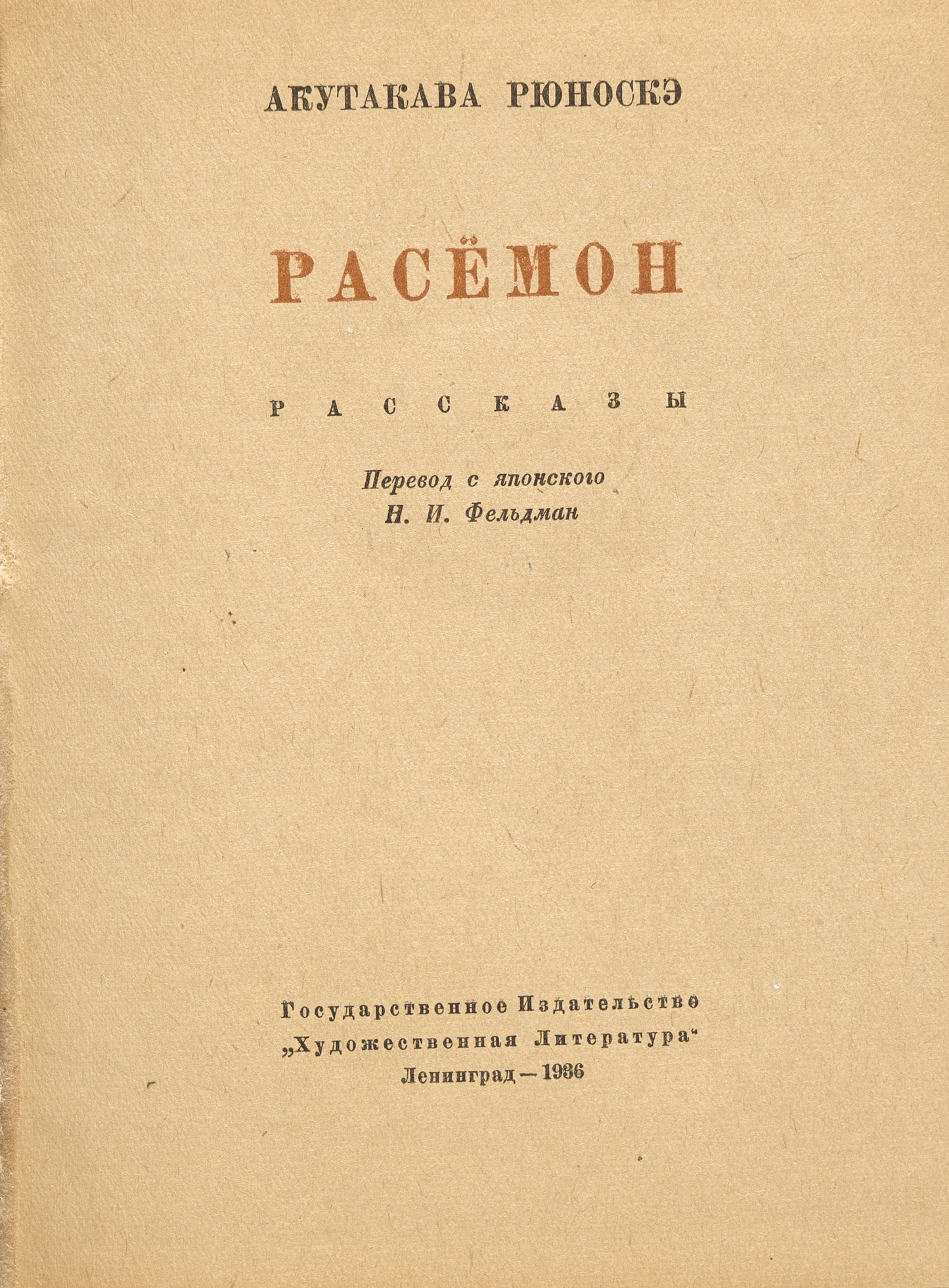Akutagawa Ryūnosuke
Rashomon. 羅生門. First Akutagawa's book in Russian.
Rashomon. 羅生門. First Akutagawa's book in Russian.
Couldn't load pickup availability
Akutagawa Ryūnosuke Rasemon [Rashōmon / 羅生門]. The stories.
Translation and preface by N. Feldman.
Leningrad, Khudozhestvennaya literature, 1936.
16mo, 368, [4] pp.
In publisher's binding. Issued without dust jacket.
Near very good condition.
First Akutagawa's book edition in Russia. One of 10 300 copies published.
Akutagawa Ryūnosuke (芥川 龍之介; 1892–1927) is a follower of Natsume Sōseki's literary style and 'the father of the Japanese short story'. The Akutagawa Prize, Japan's most prestigious literary award, is named after him. It was established in 1935, a year before this book's publication. Akira Kurosawa's film Rashomon (1950) won an Academy Honorary Award at the 24th Academy Awards.
In the USSR Akutagawa's stories first appeared in 'Vostochnye sborniki' ('Oriental collections'; 1924). For the Soviet ideology, he was a staunch opponent of militarism and fascism. On the other side, he didn't break up with 'the old rotten bourgeoisie culture'. As a result, he 'came to a dead end and committed suicide'.
This short story collection includes: Rasho Gate (羅生門/Rashōmon; 1915), The Handkerchief (手巾/Hankechi; 1916), Monkey (猿/Saru; 1916, no translation into English), Fortune (運/Un; 1917), Mensura Zoili (1917), The Story of a Head That Fell Off (首が落ちた話/ Kubi ga ochita hanashi; 1918), Kesa and Moritō (袈裟と盛遠/Kesa to Moritō; 1918), Hell Screen (地狱变/Jigoku hen; 1918), Mandarins (蜜柑/Mikan; 1919), A Strange Story (妙な話/Myōna hanashi; 1921), Autumn (秋/Aki; 1920), The General (将軍/Shōgun; 1922), おぎん/O-Gin (1922), Gratitude (報恩記/Hōnki; 1922), The Garden (庭/Niwa; 1922), A clod of earth (一塊の土/Ikkai no Tsuchi; 1924), Horse Legs (馬 の脚/Uma no ashi; 1925), A Young Socialist (或社会主義者 /Aru shakai shugi-sha; 1926), Spinning Gears (歯車/Haguruma; 1927), A Fool's Life (或阿呆の一生/Aru Ahō no Isshō; 1927).
The translation and preface were prepared by Nataliya Feldman (1903–1975). She also translated Matsuo Bashō and composed important Japanese textbooks. Feldman was the wife of Soviet leading Japan specialist Nikolai Konrad. He was arrested as a Japanese spy in 1938. In fact, Feldman narrowly escaped arrest herself. However, Akutagawa's books with her translation appeared again only in 1952. This translation was republished in Tokyo (Nauka-sha, 1973).




